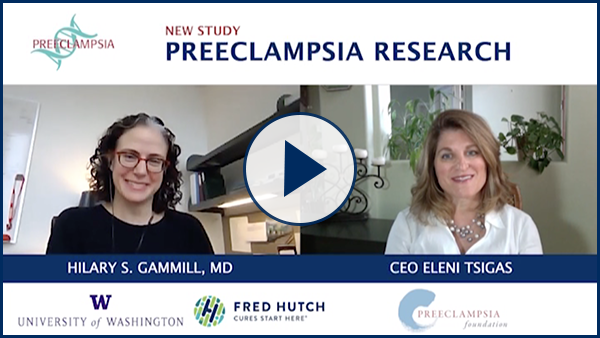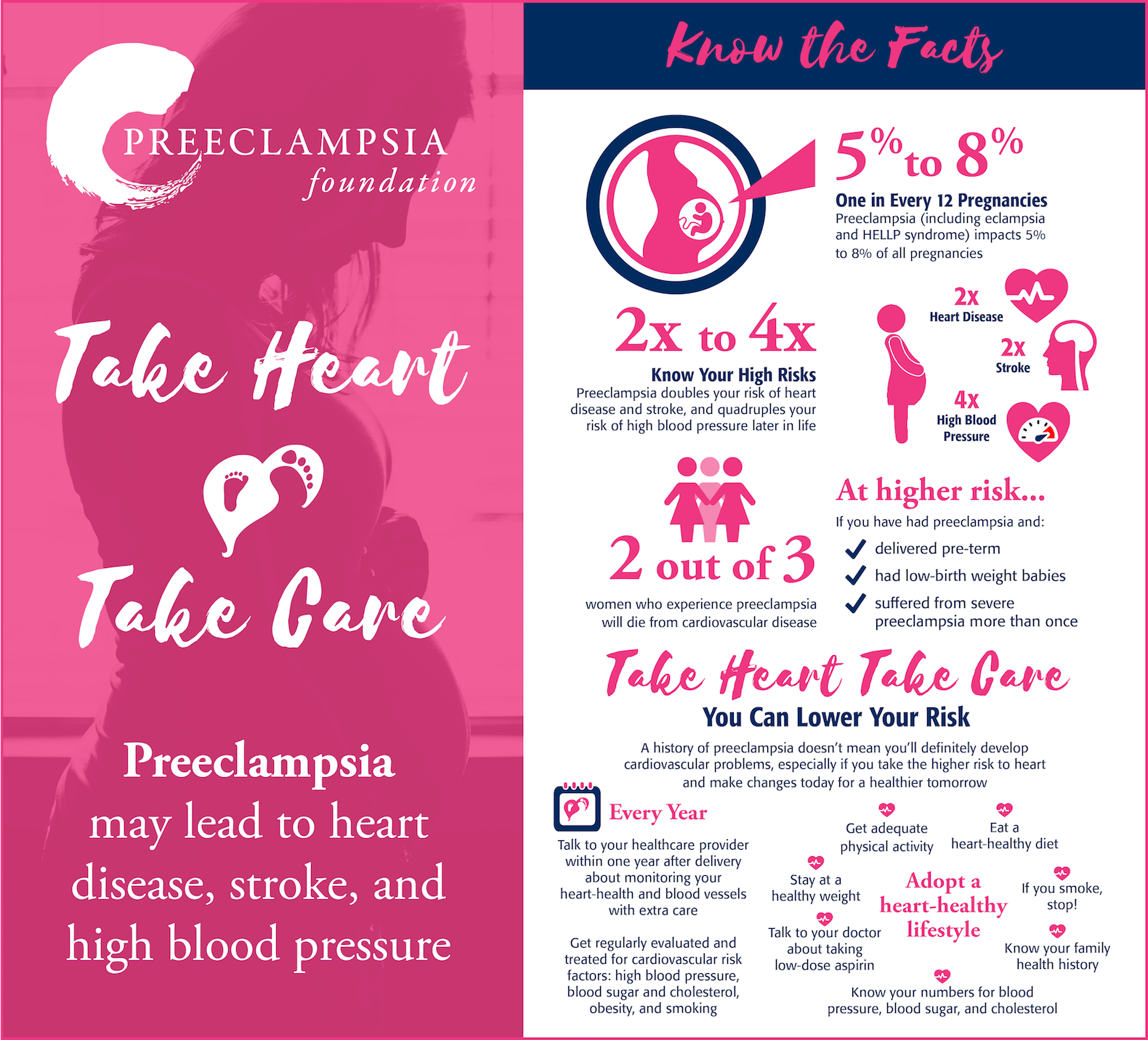Results are in for a major study you made possible!
A major research study using data and DNA samples from The Preeclampsia Registry helps explain the connection between preeclampsia and heart disease. Entitled "Preeclampsia and Cardiomyopathy: Shared Genetics?" this paper was published in Circulation, a well respected peer-reviewed medical journal published by the American Heart Association.
What made this research possible? You! Your ongoing involvement in The Preeclampsia Registry has enabled many other studies which are also underway. "We are sincerely grateful to the women and their families for playing such a pivotal role as we seek to find a cure," said Alina Brewer, Registry Manager.
As you may know, women with a history of preeclampsia are at a two to eight times increased risk of cardiovascular disease (CVD) later in life, however, it isn't fully understood if preeclampsia causes CVD or if the conditions share common risk factors. This study demonstrates that gene variants related to certain types of heart disease, namely idiopathic and peripartum cardiomyopathy, are also associated with preeclampsia. Cardiomyopathy is a condition that makes it difficult for the heart to pump blood to the rest of the body.
This is the largest whole exome sequencing study done on a preeclampsia population. Researchers studied the DNA samples of 181 women with a history of preeclampsia from The Preeclampsia Registry. They conducted DNA sequencing on the samples, looked at variants in the 43 genes known to be associated with cardiomyopathy, and examined the resulting data. The results from The Preeclampsia Registry participants were compared with known results from two control, or comparison, groups.
The study found that women with a history of preeclampsia were significantly more likely to carry a gene variant related to cardiomyopathy that those in the control groups. Different types of variants were examined and reported in the study. For example, when looking at the prevalence of TTN gene-related rare damaging missense variants, these variants were present in 68% of the women confirmed with preeclampsia. This is significantly higher than the control groups that presented 47% and 49% prevalence.
Interestingly, for this subgroup of women, the study found that women with a cardiomyopathy genetic variant were less likely to have had a preterm preeclampsia delivery than those without a variant. Published studies show that women with early-onset preeclampsia are at a greater risk for future cardiovascular disease. However, these results suggest an opportunity to identify risk in women with later onset preeclampsia in order to recommend ongoing follow-up and potential interventions.
Overall, these findings have the potential to better determine a woman's risk for heart disease after preeclampsia and may also inform future studies that seek to define and predict both preeclampsia and heart disease. More research and an improved understanding of the relationship between preeclampsia and heart disease can also influence care during and after pregnancy, and ultimately, improve cardiovascular health for women.
"We've known about gene variants in cardiomyopathy for some time, so we wanted to analyze the presence of these genes among preeclampsia survivors, " said Kenneth Ward, MD, the senior author of the study, medical geneticist, and Laboratory Director at Taueret Laboratories LLC, Salt Lake City, Utah, which provided an in-kind donation to facilitate the sequencing part of this study. "In general, a small number of the general population carry these cardiomyopathy genes, but these preeclampsia survivors had a much higher rate of carrying them."
"This study, and The Preeclampsia Registry more broadly, represent results of a true partnership between preeclampsia, eclampsia, and HELLP syndrome survivors and families, researchers, and the Preeclampsia Foundation," said Eleni Tsigas, the Preeclampsia Foundation's Chief Executive Officer and co-author of the study. "As a patient advocacy organization that empowers survivors and families to drive research, we're pleased to offer The Preeclampsia Registry as an important resource for preeclampsia researchers. In fact, the data resulting from this study will be gifted back to the Registry for other researchers to use."
"Participants in The Preeclampsia Registry are admirably committed to improving preeclampsia outcomes. Their dedication made this study possible and provided insights into preeclampsia and cardiomyopathy genetics that will inform future research with implications for understanding preeclampsia, as well as long-term maternal health," said co-author Hilary Gammill, MD, a Maternal-Fetal Medicine physician-scientist, Associate Professor at the University of Washington, and a co-chair of the Scientific Advisory Council for The Preeclampsia Registry.
Funding for this study was generously provided by the Peter Joseph Pappas Research Grants program through the Preeclampsia Foundation, Taueret Laboratories, LLC, and the Community Foundation for Brevard.
For questions, comments, or to request access to the full manuscript, email registry@preeclampsia.org.
Are you at risk for cardiomyopathy?
You may now be wondering if you are at risk for cardiomyopathy and if individual genetic results are available to you. As stated in the study consent form, we're not able to share individual results from this study. More research needs to be done for healthcare providers to feel confident about using this information to make recommendations for care and treatment. However, this study brings us one step closer to understanding how preeclampsia and heart disease are related. This could not have been done without your help.
Women that have had preeclampsia have three to four times the risk of high blood pressure and double the risk for heart disease and stroke. They also have an increased risk for developing diabetes. There are, however, things you can do today to minimize your risk. The infographic below explains more.




